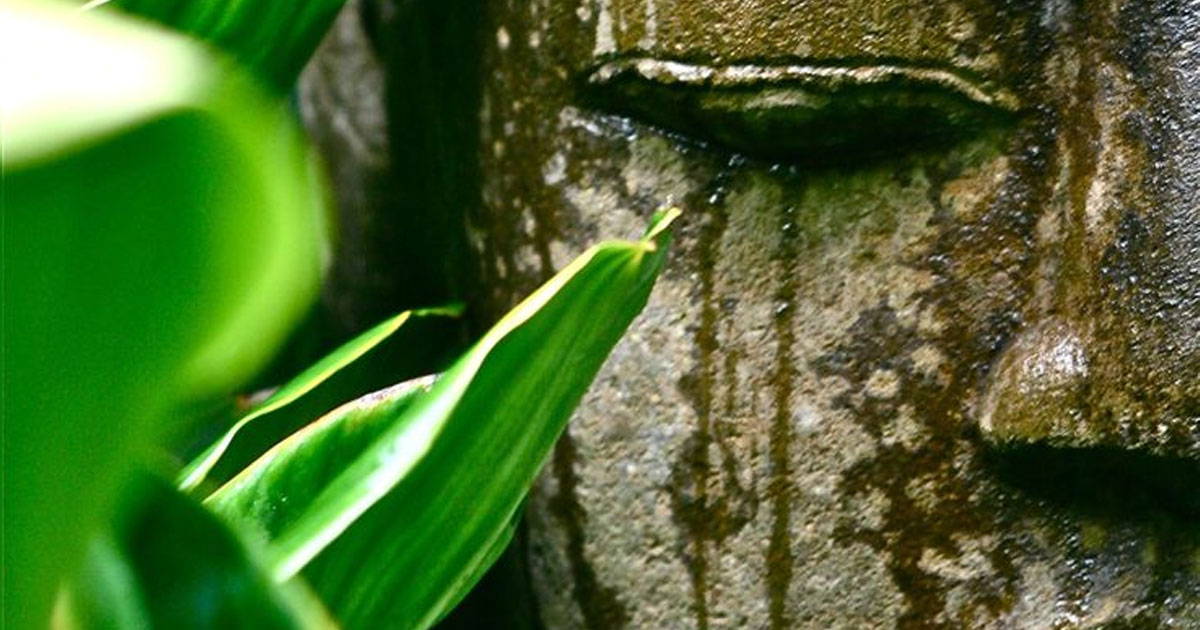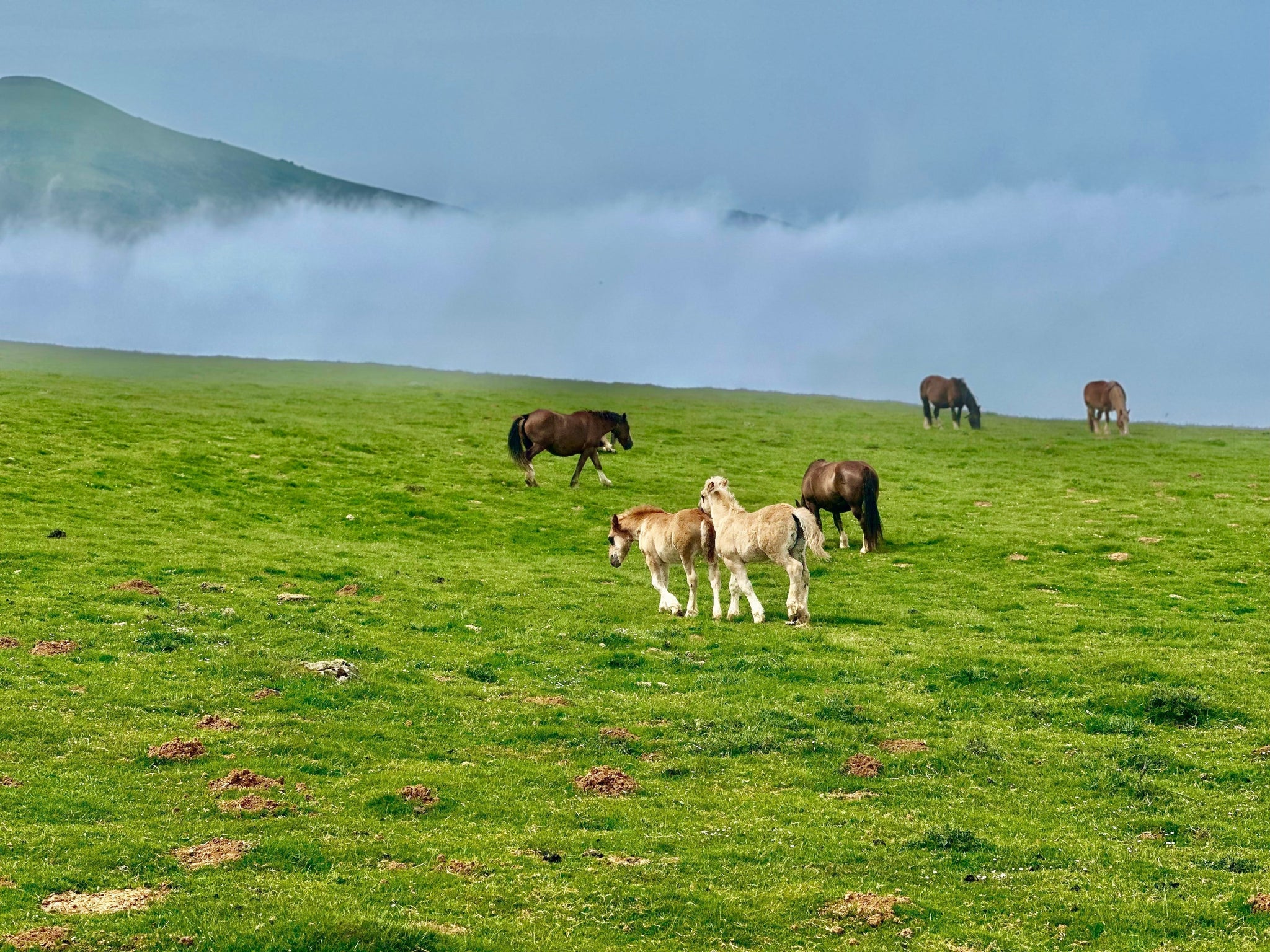
A few nights ago I spent an unusual and grueling amount of time taking in the news. I curled up on my couch as if to settle in to watch a film—only the story I took in was all too painful and real, once again. I felt like I needed to force myself to learn the details of this current tragedy, the last two—or three—having been avoided. I felt like I wanted to know whether I have become numb to these tragic occurrences plaguing our nation. I wanted to confirm that my online support of Sandy Hook Promise and Moms Demand Action for Gun Sense in America —two dedicated and powerful factions—was not really enough. I listened to an interview with a well-spoken young man who was in a classroom next door to where the shooting began. He was still visibly shaken from the events of the day. The interviewer asked if he was in any way “prepared” for what had occurred. He mentioned that he had been prepared in lower grades of school, but that he in no way expected this or was spoken to about this in his preparation for college which had only just begun. This idea has stayed with me —this idea that he had been prepared in some way previously as a younger child. I feel sickened when I consider the moment when either of my still-little children catch wind that they may have to be concerned—prepared even—for the possibility of being shot at or even killed in school.
Driving today, I began to think about the individual that is capable of committing such senseless acts of violence. I do not profess to know all of the statistics—I have tried not to pore over the characteristic of these troubled souls, not wanting to be a part of bringing glory to their unfathomable acts. Certainly there have been some cases of serious mental illness. With two young boys of my own, I began thinking about these perpetrators as young children. I connected with the innocent place from which we all begin—where they began. I started to think about all of the places where we—as a society—may go wrong with boys, with children, with people. And internally I began to come up with a list of questions that we might ask ourselves at least in an attempt to be the change we would be so heartened to see in the world.
I by no means think or feel that I have all of the answers and I can only speak to what I know—the power of mindful awareness, and the insight that mindful presence may bring. I do believe in the potential for small shifts to usher in big change and in the words of Margaret Mead, that we should, “never doubt that a small group of thoughtful, committed citizens can change the world; indeed, it’s the only thing that ever has.”
My hope is that in contemplating these questions, we might all shift ever so slightly and tip the balance in favor of greater peace and greater love in both our communities and in the world.
-
In how many ways do we make individuals “wrong” from the very start?
Children have endless energy for running and jumping, climbing and shouting, wielding sticks and throwing balls in the house and playing with their food and pushing boundaries and not quite understanding from the very start what is expected of them by our communities at large. How we respond as a society to this energy begins to stitch the fabric of a child’s being and their way of seeing themselves from the very beginning. There is gentle teaching of appropriate behavior and boundaries and there is shaming into submission. There is protecting the needs of children with appropriate outlets for physical activity and there is repressing, denying or ignoring energy to a point that it may begin to simmer inside waiting to find its way out at some later date. Which of these pathways are we fostering in our communities and in our schools? And what of the emotional lives of children? Children are teeming with emotions—the same as we adults. How might we allow these feelings—these sometimes unseemly expressions of feelings—a place to come forth, a place to land safely so that they too may not build up over time in destructive ways? How might we better gather as communities and ensure that every child is embraced and cherished and heard? -
What are the characteristics in the individuals who we celebrate?
Somewhere in my following of the tragic events in Oregon, I read that the gunman had written that he didn’t believe that he was a significant person, that he would never be a significant person and that only this act would make him significant. I began thinking about all of the striving that goes on in our society. Some of it is very good. I strive quite a lot myself. Yet, as children are coming into their own in this culture, how might they be affected by what we set out before them as a way to measure their own worth? We have become an increasingly celebrity-centric society with individuals gaining fame and 24-hr news coverage because of their appearances, because of their money, even because of their killing sprees. How might we communicate to the children in our community instead that they are worthy just for simply being here on earth as human beings? How might we demonstrate an equal value for the many gifts that reveal themselves in individuals if only given the opportunity to come forth? How might we strive to celebrate the varied ways in which people may show up in this world? It doesn’t really matter whether children end up as the wealthiest individuals, with the best degrees and the most prestigious jobs. Nurturing kindness and love as valuable attributes within households and communities can and does spread in the same way as any other popular trend. -
On what do we place our attention?
My family is fortunate to be a part of a school community in which less-media exposure is considered better for our children. My husband and I both have “smart phones” that we use more than we probably should and I have found a lot of connection as a stay-at-home-mom via this outlet. But we do try to put aside our phones when we are with our children. When we travel, I look around the airport lounges and the airplane isles and I imagine that I am in my children’s mind’s eye. I look around and I see that just about every person is engrossed in some sort of device. What kind of message is this sending to our children? With heads so often tipped downward into a seemingly important world, imagine the number of missed connections with children or young people or even adults who are feeling isolated and like they don’t matter. What would it look like to put our devices away, to look around and really begin to see one another again? What would it look like to engage, instead, with the person sitting next to us in a waiting room, the person ahead of us in the grocery line? What message would this send to our children? -
How do we measure success in our societies?
This morning a contractor who had previously done some work at our home gathered two young men from his team and brought them to our home at 6:45 am in order to help move a very heavy and cumbersome piece of art from my attic to my garage. They arrived five minutes before they said they would, worked diligently on my behalf and refused payment. I was so touched by their generosity of spirit, by their grace under the pressure of this heavy move, by the example of the lead contractor to these two men “coming up.” How are we finding ways to celebrate the day-to-day generosity and kindness of people like this? How might we better let our children know the value of a kind-heart, a willingness to give? Of truly honorable living? How might we better celebrate the meaningful gifts of the spirit that every individual has access to? -
How do we express our personal values?
I made the Sandy Hook Promise. I remember where I was when I heard the news about this particular school shooting. I often receive e-mail letters from Nicole Hockley, reminding me of her precious, little boy Dylan who was killed on that horrific day. I can hardly read her words—the pain I feel for her is so overwhelming. I believe that increased gun regulation is at least one component of this complex issue. What have I done about that belief? I have signed a few petitions, forwarded letters to congress and made one small donation but mostly it seems that I have left the real fight to the members of a club that no mother (or father) would ever want to be a part of. I shudder at the thought of the number of prayers that go out in this country of, “please don’t ever let this happen to my child.” How I spend my time and resources is a reflection of my values. How might I better assist these parents who have already been through more than anyone should ever have to go through? How do we as a whole express our values within our communities? -
What happens when lives are too full?
I am fortunate to be a part of a community that values down-time for our children. This is not a typically over-scheduled group of people surrounding me. And still, many moms and dads feel spread too thin with too much to do and not enough time to accomplish everything. Today’s world has our plates filled to the brim and at a point something has to give—something or someone falls through the cracks. Where are we letting the children in our communities fall through the cracks? When there isn’t time to notice, much less offer to help or report the red flags that are occurring right before our eyes, we have gone off track as a society. What do we need to adjust in order to be more present, more aware, more kind and more open to connect with those in need who walk among us? -
How might we be more intuitive to those around us who may be suffering?
There is a quote by the young-adult fiction writer, Wendy Mass that says, “Be kind, for everyone you meet is fighting a battle you know nothing about.” I have found this thought process useful in coming to a place of consciousness and awareness in how I meet others who live differently from me. There are so many ways to be and so many ways to live. We all have a right to be valued and to be seen. Who are the people among us that could use a greeting, a smile, an offering of support? These ways of reaching out, of connecting multiply and grow exponentially. -
Is my mind too full to really listen? Is my mind too full to hear?
In this life we have a finite number of moments to share with others and we can never really know when our—or their—last breath might be. Is there something that matters more than giving our full attention to one another? Is there a way that we might slow down our minds and discover a quiet place in which we might be more open to listening? We can’t stop living—growth and expansion are beautiful aspects of life—however, when our ambitions, our “to-do’s” usurp our ability to connect, to truly see one-another, we’ve lost our way. Are there any souls in our midst in need of deep-listening? How might we listen more closely to our own inner-whisperings? -
Do we really value every individual in our society equally?
I recently wrote a post about the innocence of children and how we were all at one time innocent. One child might have come into this world surrounded by luxury, another by squaller, but our essence—if only briefly—was good and pure and divine. What happened, then? Connection. Separation. Praise. Shame. Attention. Neglect. Regard. Disregard. Activity. Idleness. Love. Hate. For every human alive today there has been a unique combination of actions and reactions making up each of our very own personal lives and here we are friends. How do we meet those who we come in contact with? How might we raise our level of consciousness in order to recognize the true and inherent value of every single soul who walks this planet? How does that level of respect and reverence for human life spill forth? -
Do we really believe that small gestures can have significant impact?
I have known the impact of a smile from a stranger on a lousy day. I have seen the sad face of a child light up with a warm hug from an attentive adult. I have made a stranger a friend to me and to my boys in a grocery store and witnessed the joy it brought to us all. I have talked with homeless individuals and noticed our similarities, our need to feel safe, to be seen. It doesn’t take all that much to touch a life. Things may not transform overnight, but little by little we can make a difference. This is our world, let’s fill it up with love.
In Memory and with Deepest Condolences to the Entire Umpqua, Oregon Community
Lucero Alcaraz
Quinn Glen Cooper
Kim Saltmarsh Dietz
Lucas Eibel
Jason Johnson
Lawrence Levine
Sarena Dawn Moore
Treven Taylor Anspach
Rebecka Ann Carnes
Subscribe to my mailing list!
Leave a comment (all fields required)
Comments will be approved before showing up.


